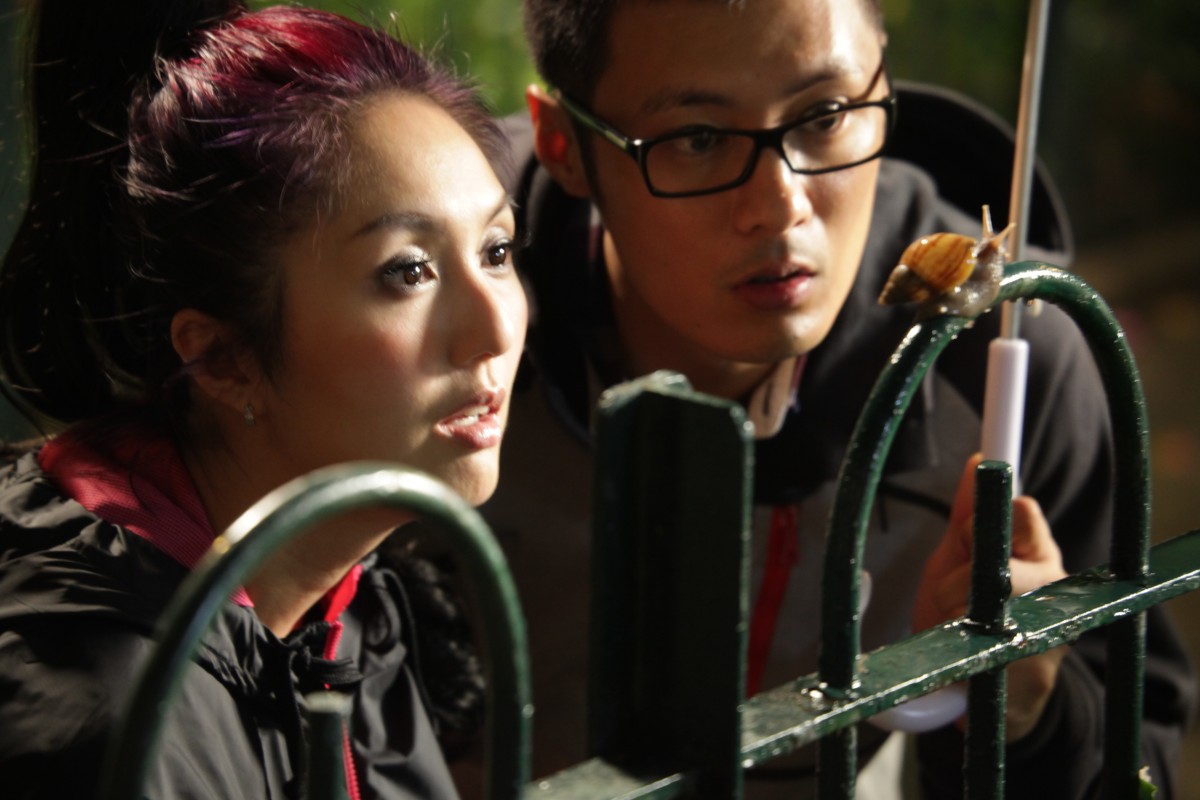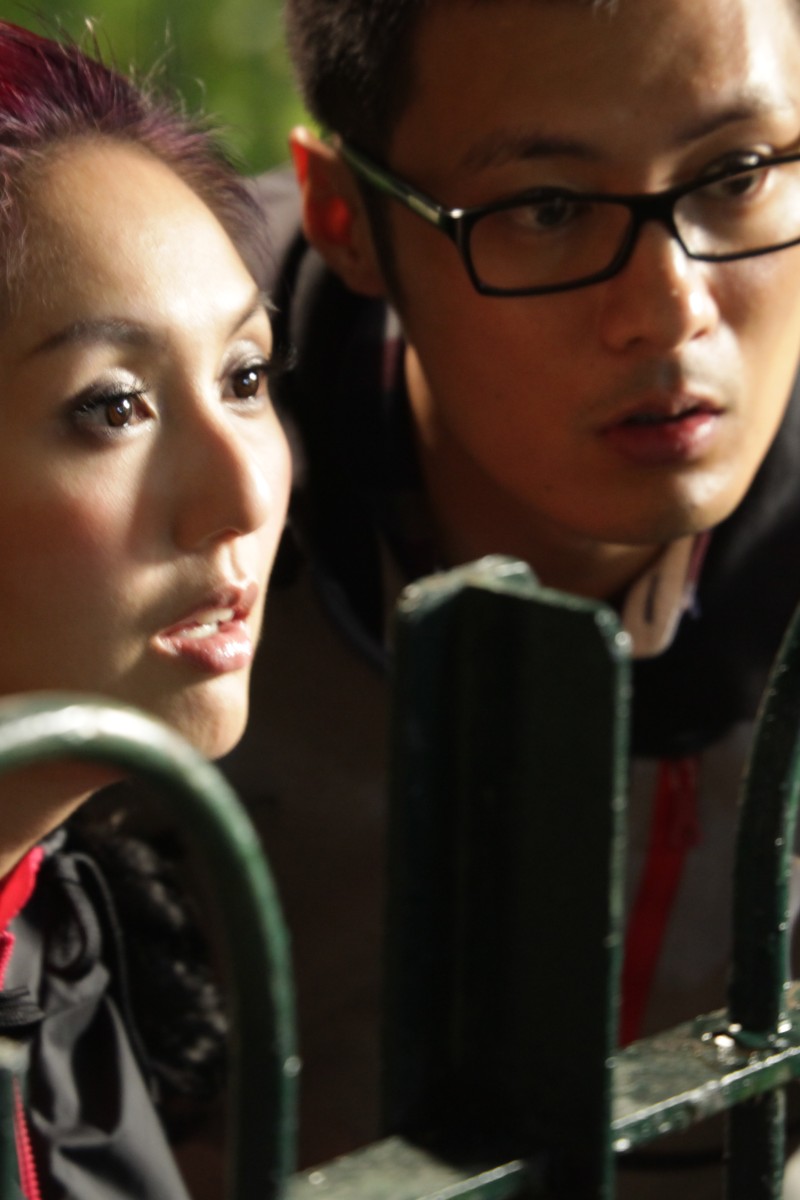 Love In A Puff
Love In A PuffIf we asked you to name your top movies for this year so far, action lovers would probably say Mad Max: Fury Road or Furious Seven. Superhero fans would go for Avengers: Age of Ultron. Disney hits Cinderella and Tomorrowland might also make the list, and music lovers may root for Pitch Perfect 2. Stop right there. What's missing? Where are the local films?
They're just not as good, says Ross Chen, aka "Kozo" of LoveHKFilm.com. Since setting up the site in 2000, Chen has written more than 1,600 reviews on local films as well as features recommending the top 200 Hong Kong movies ever.
"Hong Kong films have lost a certain spontaneity. Back then [in the 80s and early 90s] the business was doing so well they didn't have a lot of rules. They were just given money to do whatever they wanted," says Chen. "So even though there was a lot of garbage, there'd be a lot of neat ideas and energy."
Those films would be really fun to watch, because you could see big stars such as Maggie Cheung Man-yuk and Tong Leung Chiu-wai doing wacky things on screen. Chen likens Hong Kong cinema in its golden age to what we now see in Bollywood: commercialised, energetic and over the top.
Chen, a Taiwanese-American, grew up in the US, went to film school in New York and fell in love with Hong Kong movies. There was little Asian representation in cinema in the early 90s, and Hong Kong films always had English subtitles so Chen could understand the stories and relate to the cultural values.
The filmmaking hub for Chinese-speaking countries and much of East Asia, Hong Kong was the third-largest motion picture industry in the world, behind Hollywood and India. But in the mid-90s, costs grew, budgets shrank and the industry deflated.
TVB, which nurtured almost all the best actors in the industry, including Chow Yun-fat, Andy Lau Tak-wah, Stephen Chow Sing-chi, Tony Leung and Louis Koo Tin-lok, spent less money training its actors. Hong Kong used to produce around 400 films a year, but now that number has dropped to around 60. "We're lucky if even a quarter of them are good," says Chen.
He thinks one reason Hong Kong people are less supportive of local films is because they are very influenced by China. It’s inevitable because that’s where most of the funding comes from, but young people are less willing to identify with China.
But Chen says he still watches most of the local films despite the poor quality because there's something to appreciate in each. "The one thing I wish younger moviegoers would understand about Hong Kong cinema is that it still represents you, (more so than Hollywood films)," he says. He also thinks Hollywood dumbs things down by trying not to offend as many people as possible.
“I’m interested in Hong Kong as a place and how it changes. A lot of what happens in Hong Kong is reflected in the movies and how they're made,” he says.
In the early 90s, martial arts movies full of crazy kung fu moves were all the rage. They became more influenced by western production values towards the end of the decade, and office workplace comedies became more popular in the noughties.
Recently, Chen has noticed that more films address the issue of Hong Kong identity, such as The Midnight After, The Way We Dance and Love in a Puff. But he says the younger directors, such as Pang Ho-cheung, can be too explicit in their messages.
"These directors grew up in a generation where they really want their work to mean something. They're more interested in that than telling a story," he says.
"The best type of art is something that (makes people think), and not just something that spoon-feeds people on what to think or feel." Chen names Tsui Hark (The Taking of Tiger Mountain) and Peter Chan Ho-sun (Dearest) as successful directors who can be very commercial but still explore ideas outside of what’s going on in the film.
Chen's website has brought him many pleasant surprises: it got him a job offer and gave him the chance to live in Hong Kong, where he met his wife.
Last year, he also became a member of the Hong Kong Film Critics Society. "Anyone can be a critic, it's just about approaching it from what you know and writing for the type of moviegoer you represent," he says.
"That's also why you can't really make a living as a professional film critic anymore."
Kozo recommends five Hong Kong films to see over the summer:
1 Chungking Express (Wong Kar-wai, 1994)
Probably my favourite film of all time. It was made when Wong was freer with his filmmaking. It speaks about many things: alienation, living in a big city, loneliness - a postmodern Hong Kong movie. The emotions are also easy to relate to, with an atmosphere like the works of Japanese author Haruki Murakami .
2 Peking Opera Blues (Tsui Hark, 1986)
I call it the perfect Hong Kong movie. It did a lot of things Hong Kong movies do well but in one film. There's action, Chinese opera, strong female roles, and a relatable story about friendship, and breaking from tradition. It also has a political subtext about the dynamic between China and Hong Kong and has a very lively and energetic feel.
3 Fong Sai-yuk (Corey Yuen, 1993)
Starring Jet Li, this is another perfect Hong Kong movie. There's lots of action, comedy, drama and a great performance by Josephine Siao. It’s pure enjoyment, packing different sorts of emotions into the same film. There’s something for everybody .
4 Police Story (Jackie Chan, 1985)
This movie has some of the most amazing stunts you'll ever see; dangerous things that Chan was still young enough to do. There’s so much imagination and creativity in the action. Bodies flying through the air, stuntmen risking themselves, no CGI, none of that stuff.
5 Comrades, Almost a Love Story (Peter Chan Ho-sun, 1996)
A sentimental drama about mainlanders who come to Hong Kong to make their fortune. This is the type of film that can tell a story and speak about so many other things. It’s about the experience of Hong Kong people dealing with things like the handover. There’s a romanticism that I really enjoy - people are so cynical about relationships these days.
